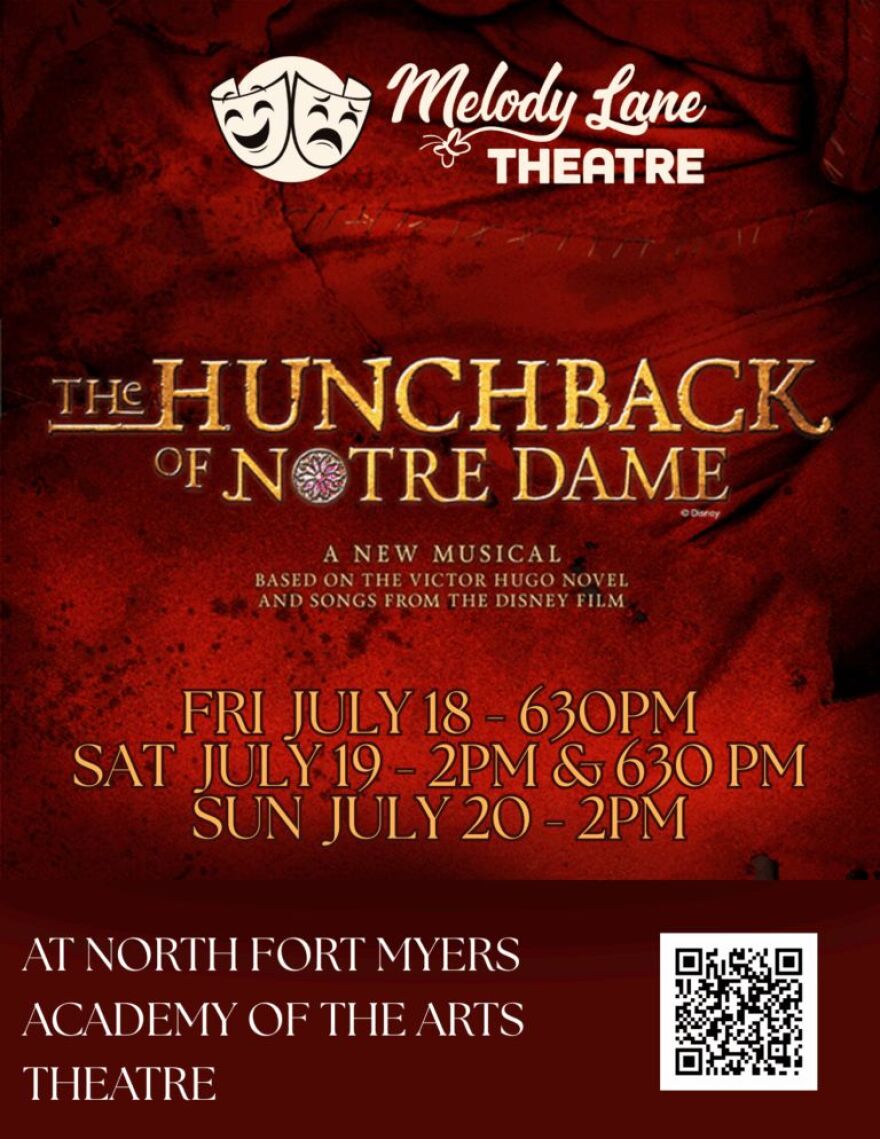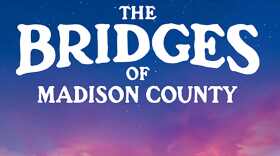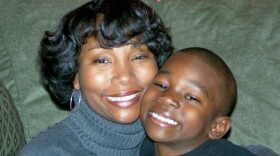Most people associate the character of Quasimodo with physical deformity. But after years of ringing the bells of Notre Dame, he was also extremely hard of hearing. That presented Directors Dana Alvarez and Amber Angeloro with a challenge and an opportunity.
“As we were considering how we wanted to portray this character, we wanted to make sure we were doing so authentically and also respectfully,” Angeloro explained. “We didn’t want it to come across like a caricature of what a hard of hearing person looks like or what they sound like or how they behave.”
So Melody Lane Theatre teamed up with the Sally J. Pimentel Deaf and Hard of Hearing Center. Director Amy Turner was at the theater on Monday with instructor Audrey Rodriguez to meet the cast and crew.
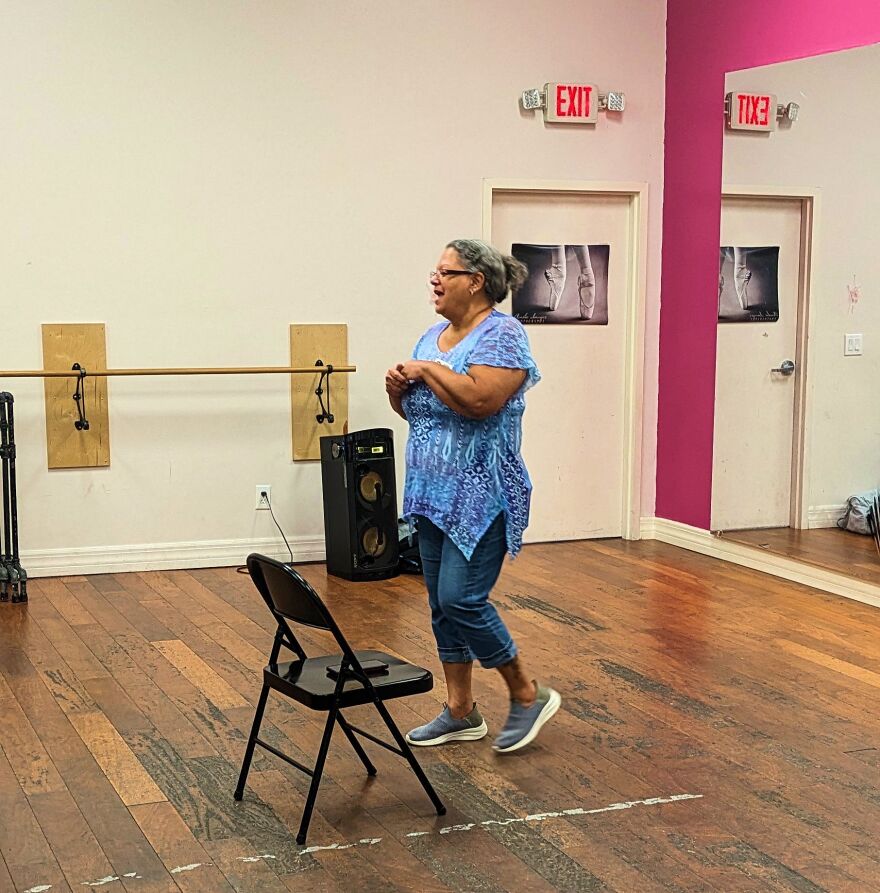
“We provide a lunch and learn program, which is what we did today. We came and we taught words specific to the theater and we talked about deafness, deaf culture and deaf awareness,” Turner said.
The cast didn’t just learn random or theater-specific words. Much to Angeloro’s delight, Rodriguez taught them how to sign an entire musical number from the show.
“We chose lyrics from some of the songs that we want the actors in the show to do sign language,” said Angeloro. “There will be certain moments where we thought it would be really powerful and very moving if the actual actors on stage were doing sign language as well.”
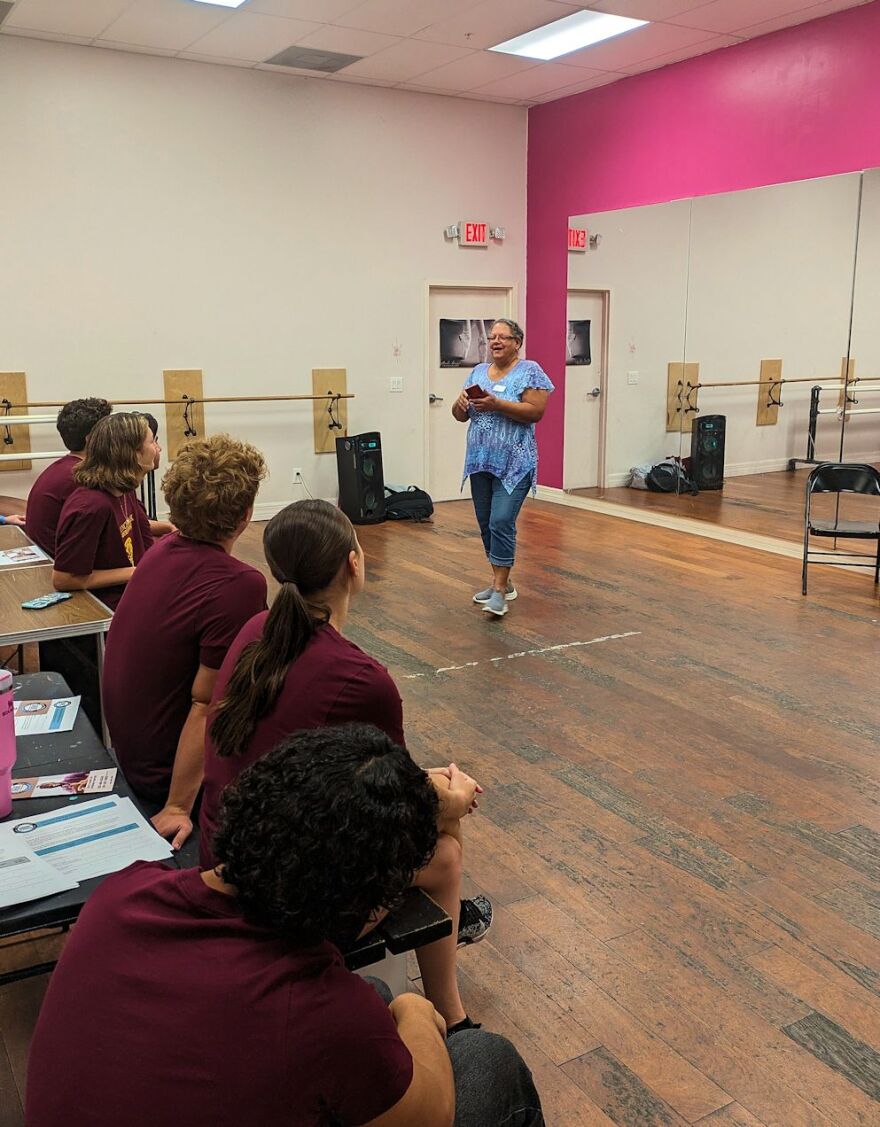
At Sunday’s 2 p.m. matinee, Melody Lane Theatre will welcome a large contingent of deaf and hard of hearing patrons. Turner says that for many, “The Hunchback of Notre Dame” will be their first show of any kind.
“Some deaf people, they’ve never seen theater because it’s been out of reach,” Turner noted.
But merely having the cast sign lyrics from a song and some lines of dialogue was not enough.
“We actually have two ASL interpreters,” said Angeloro. “They will be on both sides of the stage, and they were given the script over a month ago. They’ve been rehearsing, practicing and memorizing the entire script, which I can’t imagine. I don’t know how they’re doing that. It’s hard enough to memorize one role, never mind all of them, and the music, as well. So they’ll be there, in real time, signing, so those out there in Southwest Florida who are deaf or hard of hearing, hopefully they’ll be able to come out and enjoy some live theater.”
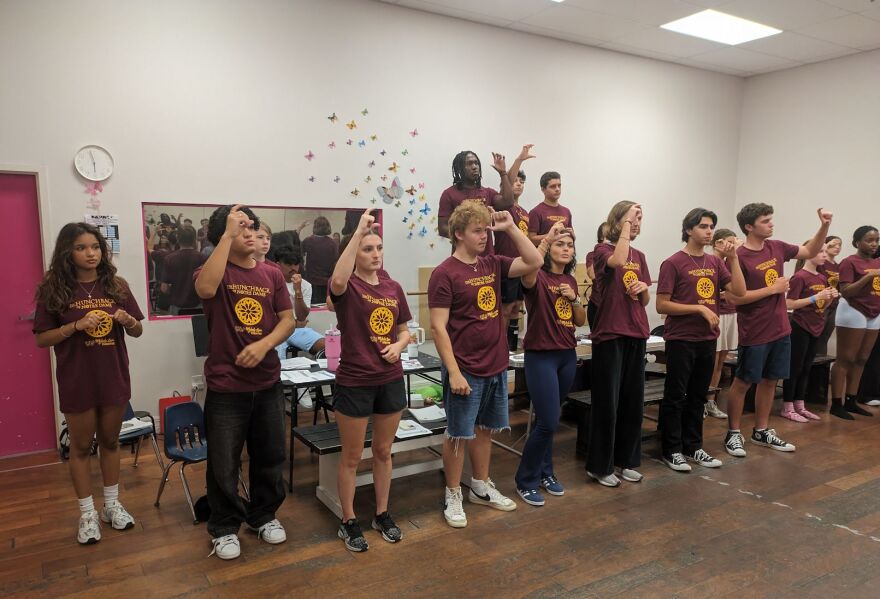
That will be huge for people in the deaf and hard of hearing community.
“The people in the audience who are deaf will be able to experience it the same way that a hearing person will be able to experience it,” Turner observed. “But now, as an added enhancement, now these kids, they’re going to be signing as well, which just shows that they have made that accommodation so that deaf people can participate."
There’s a payday for the cast and crew as well in the form of greater sensitivity to the deaf community and culture, and more authentic performances.
“We feel like they’re doing it more accurately and in a more meaningful way, and having that open dialogue and having those conversations with people from the community, I think will hopefully come through to the audience as well,” Angeloro said. “We really have a deep desire to bring more inclusivity to the community, and to make live theater more accessible to everyone, to as many people as possible.”
“The Hunchback of Notre Dame” is onstage Friday through Sunday at North Fort Myers Academy of the Arts Theatre. Sunday’s matinee will be the show that will include the two ASL interpreters and members of the deaf and hard of hearing community.

MORE INFORMATION:
Founded in 1983, the Sally J. Pimentel Deaf & Hard of Hearing Center serves the Deaf/HOH community in Lee, Charlotte, Collier, Hendry, and Glades counties.
The center has been providing quality American Sign Language (ASL) interpreters for more than 38 years to Southwest Florida. DHHC also offers ASL sign language classes in Fort Myers, Cape Coral, Bonita Springs/Naples, Lehigh Acres, Port Charlotte/Punta Gorda and online by Zoom technology.
“Our agency uses ‘Signing Naturally’ curriculum designed to introduce students to American Sign Language; to aid in communication with the deaf and hard of hearing community; and to educate those who may be losing their hearing.
“We’re so excited to partner with Melody Lane Theatre,” said Turner, who will be bringing people from the center’s deaf women’s support group, deaf senior group and deaf youth program to Sunday’s matinee.
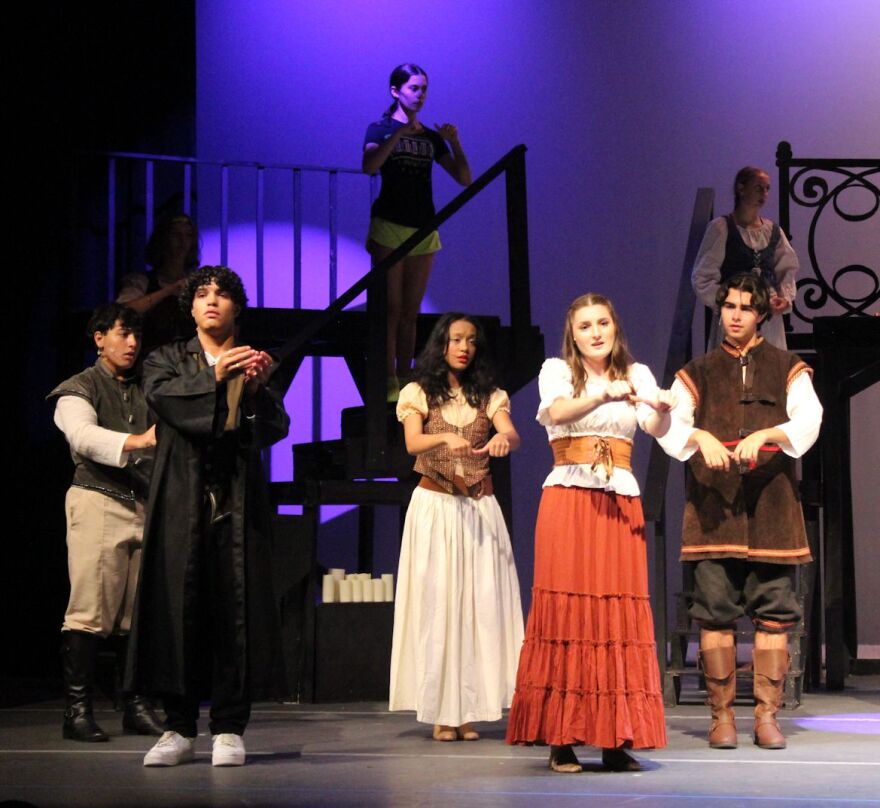
As Turner noted earlier, most deaf and hard of hearing (HOH) people rarely attend theatrical performances. So she is thrilled that not only will the actors be signing some of the lyrics and dialogue, but that two ASL interpreters will be on hand as well.
The interpreters function much like subtitles at a foreign-language opera performance. While deaf and hard of hearing patrons can intuit plot and storyline from the way the actors move about the stage, interact with each other, their facial expressions, how they move their hands, the lighting and the costumes, they lose much of the nuance and depth that’s built into the lyrics and dialogue. The ASL interpreters provide those missing elements.
Just as subtitles can be as distracting as they are helpful, so can sign language interpreters when they’re positioned too far from the action on stage. While it’s preferable for the interpreters to be center stage so that deaf or HOH persons can watch the action unfold on stage as they are receiving the translation, that simply is not feasible in a live theater performance, especially when other customers are in the auditorium. While the two ASL interpreters for “Hunchback of Notre Dame” will necessarily be positioned stage right and stage left, Melody Lane is taking care to create an unimpeded line of sight from the proscenium to each interpreter. The interpreters will also wear black and be illuminated so that their hands and arms will be visible without distraction throughout the show.
Melody Lane will also be having front-of-house staff and volunteers use sign language to greet and seat guests. On Monday, Rodriguez taught cast, crew and the design team how to sign “Welcome to the theater,” “Nice to meet you,” “tickets,” “This way to your seat” and “Enjoy the show.”
“When deaf people arrive and they’re greeted with any words, any words at all, that’s going to be so wonderful,” said Turner, who noted that in most restaurants and retail stores deaf people are generally ignored.
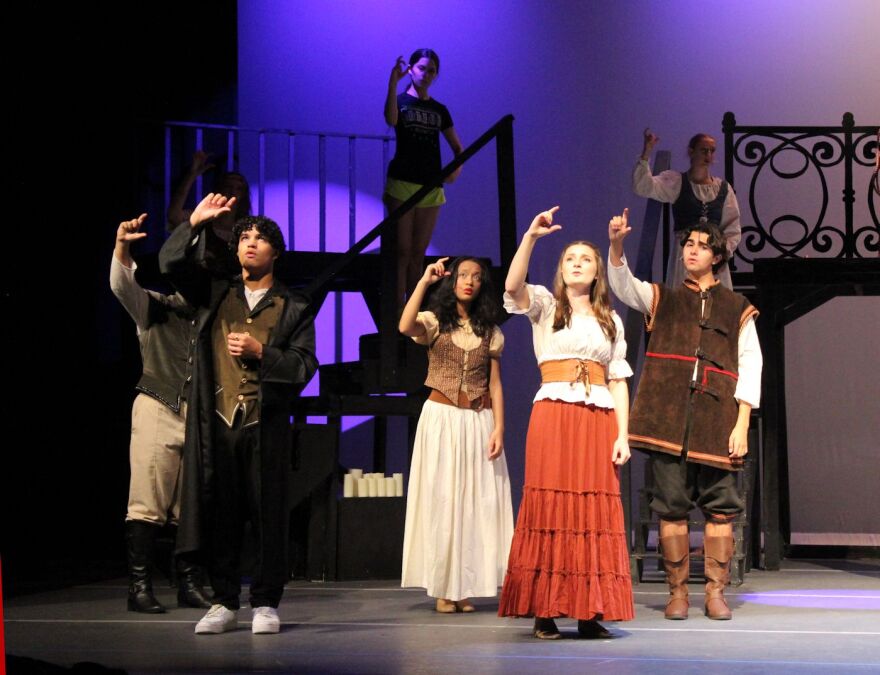
“It’s really going to be something special. We want them to be able to participate fully in society. So we’re so thankful that Melody Lane Theatre is doing this. We really are. They’ve gone over and above.”
Turner noted that the center is equipped to provide lunch and learn sessions to any theater, arts or other organization. “We have provided this and interpreters for Barbara B. Mann, Florida Rep, Naples Players Theatre, Gulfshore Playhouse down in Naples, and we provided lunch and learns for their staff."

While the lunch and learns are free, the interpreters are not given the amount of time it typically requires for them to read and memorize a script and attend one or more rehearsal in order to familiarize themselves with the lighting, sound cues, the choreography and blocking, the actors’ timing and theater terms they may not have heard before. In addition, the interpreters do not act independently of each other. Instead, they sign in tandem, so they are required to practice as a team. All of that goes into the fee the charge.
Turner mentioned that the center’s sign language classes are offered four nights a week in four different locations: Cape Coral, Fort Myers, Port Charlotte and Naples.
Classes run an hour and a half. They meet once a week for five weeks, and there are five levels of sign language classes. If somebody’s deaf or hard of hearing, the classes are free. If you have a deaf or hard of hearing family member, then they’re offered at a discount. For those who may be afraid they won’t be able to pick up signing as quickly as their classmates, Turner wanted everyone to know that there is a considerable amount of repetition and review built into the curriculum so that people will leave each class with a great deal of proficiency.
“It really is about bringing a whole group of people out into the open that can participate,” Turner added. “Deaf people need to experience life just like the rest of us. It’s very important.
During the lunch and learn, many of the “Hunchback” cast were already somewhat conversant with signing.
“Some of the kids were doing sign language already,” Angeloro noted. “Some had looked into, had done research on their own, but to be able to have an actual member of the deaf community come and teach them sign language, we feel like they’re doing it more accurately and in a more meaningful way.”

Angeloro was quick to point out that Melody Lane doesn’t just want to teach its students and summer intensive campers how to sing, dance and act. The Performing Arts Center is also committed to imparting educational content and life lessons.
“We’re just really grateful for the opportunity to partner with the Deaf and Hard of Hearing Center, [to] have them come in during rehearsal to educate us about the culture because for a lot of us, this is our first exposure, truly, to people who are different like this,” Angeloro added. “Not a lot of us have any experience with how to act when we come across somebody who’s deaf. So we’re really excited about the opportunity and hopefully more theaters in the future will be able to do this as well.”
Support for WGCU’s arts & culture reporting comes from the Estate of Myra Janco Daniels, the Charles M. and Joan R. Taylor Foundation, and Naomi Bloom in loving memory of her husband, Ron Wallace.
WGCU is your trusted source for news and information in Southwest Florida. We are a nonprofit public service, and your support is more critical than ever. Keep public media strong and donate now. Thank you.

